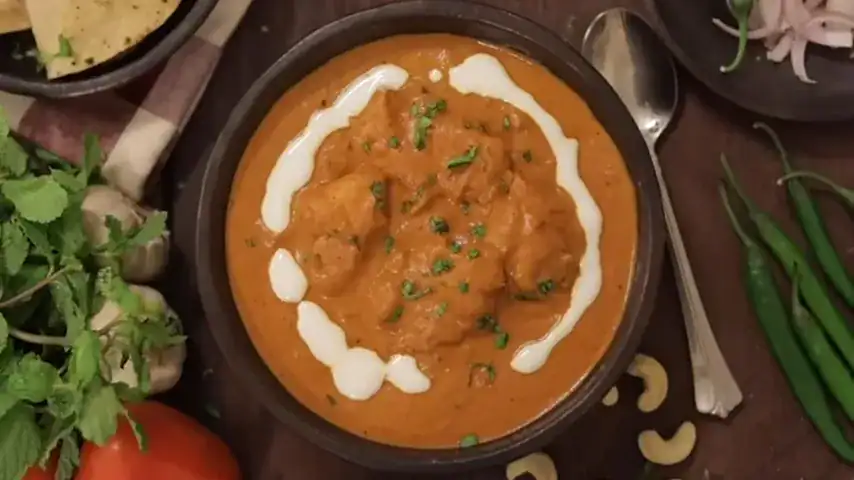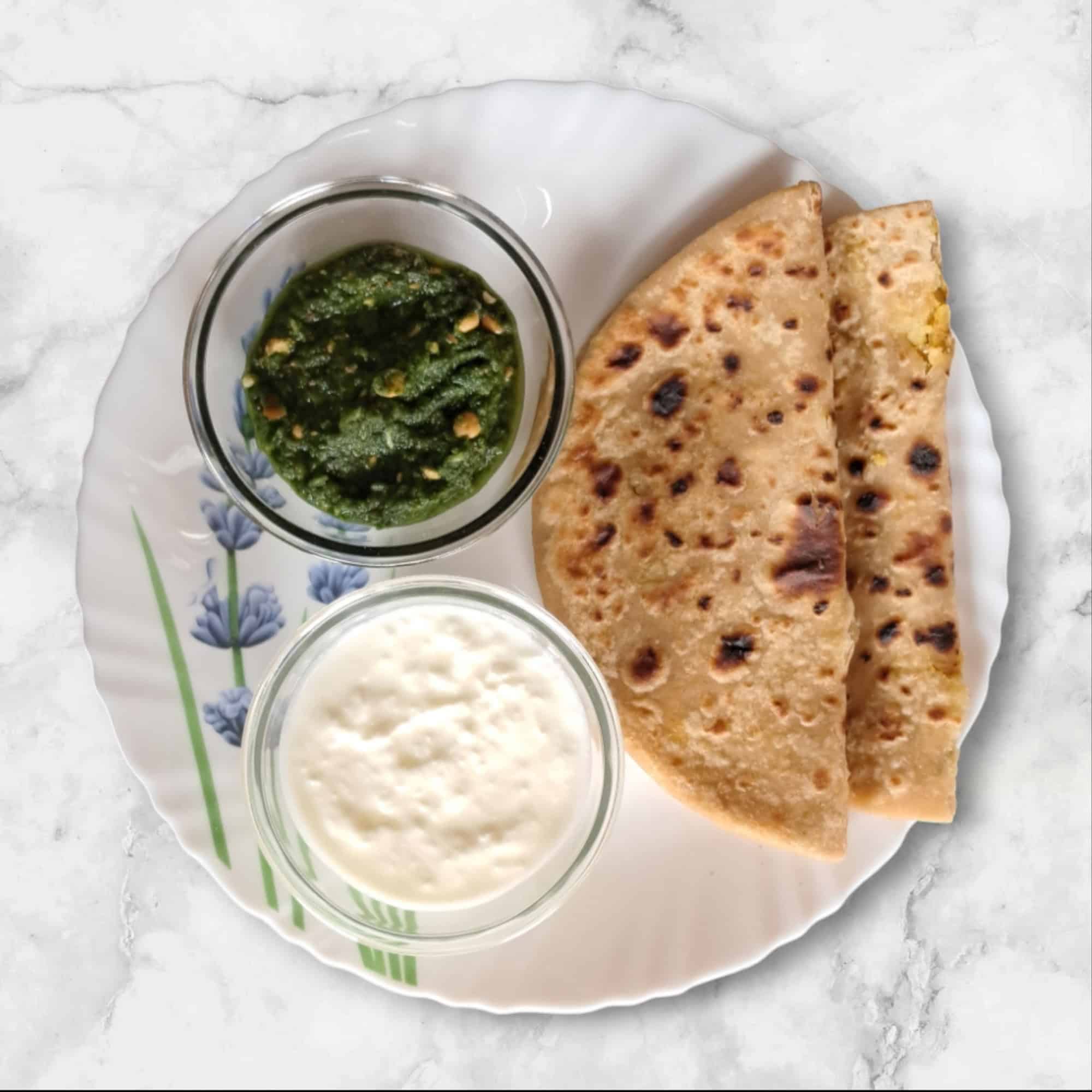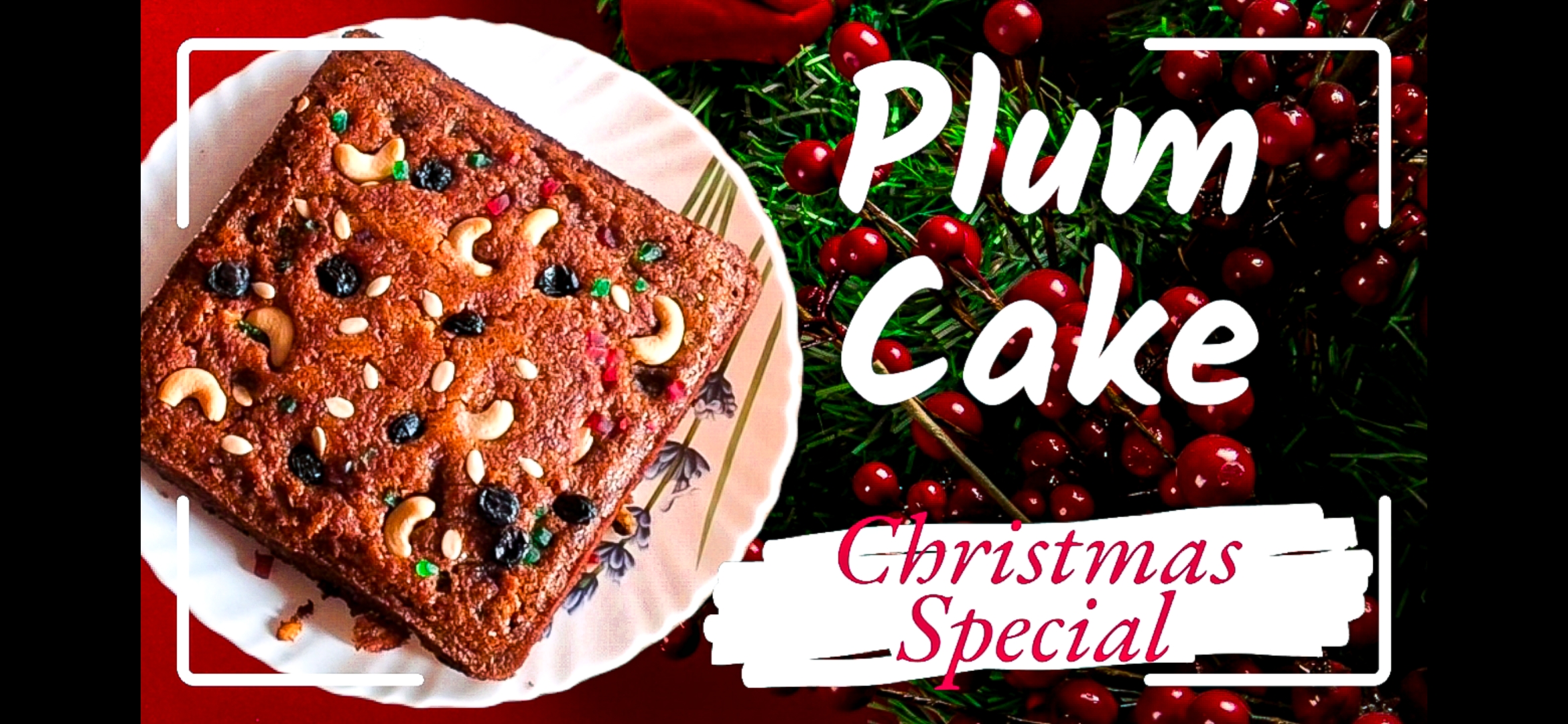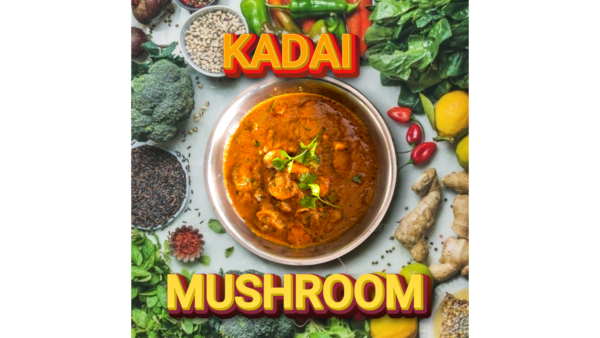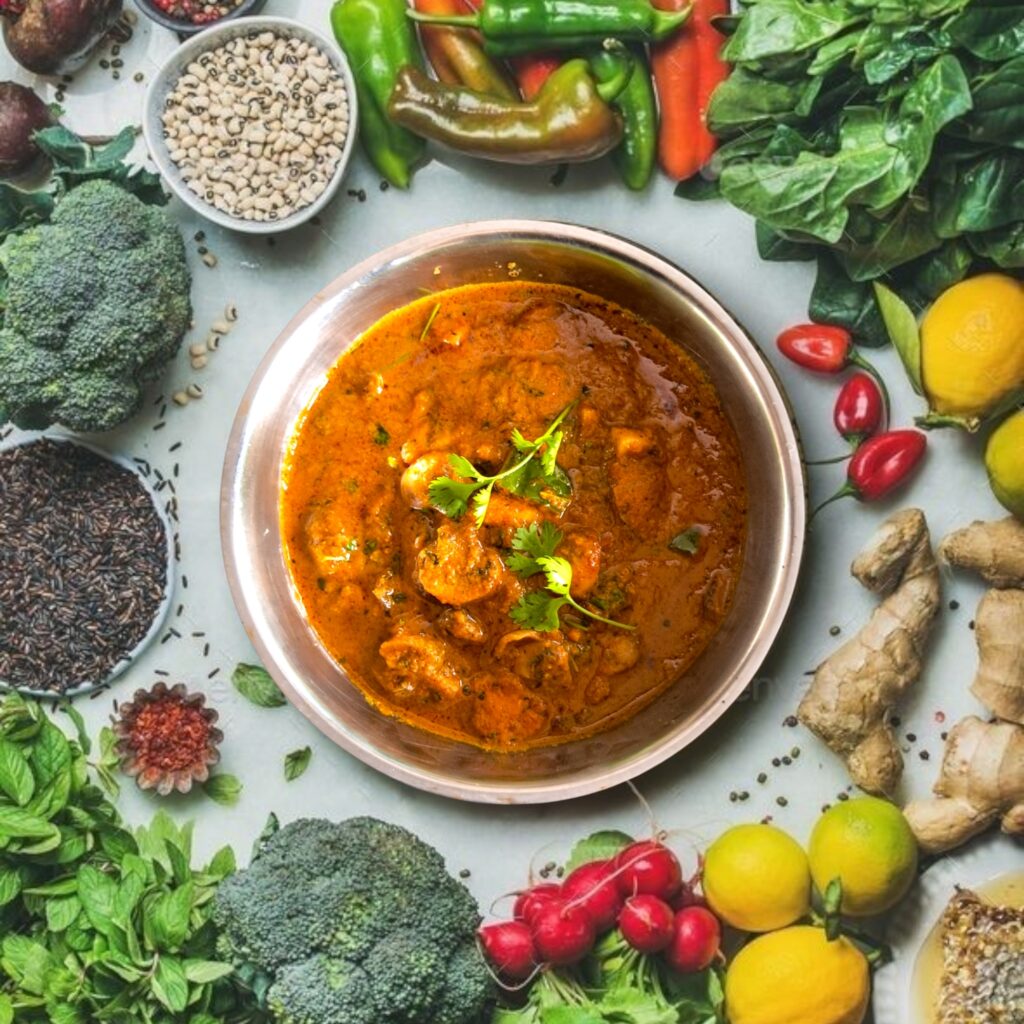Butter chicken. Just saying the name makes your mouth water, doesn’t it? This iconic dish from Indian cuisine, also known as murgh makhani, is beloved for its creamy, spiced tomato-based sauce and tender, flavorful chicken. But what if I told you that you don’t need to rely on takeout to get your butter chicken fix? You can make this restaurant-quality dish right in your own kitchen!
This easy butter chicken recipe will guide you step by step, so whether you’re a seasoned home cook or a beginner, you’ll end up with a dish that’s bursting with flavor, perfectly balanced, and absolutely drool-worthy.
Here’s everything you need to know about how to make butter chicken, including a few pro tips to take your recipe to the next level.
Table of Contents
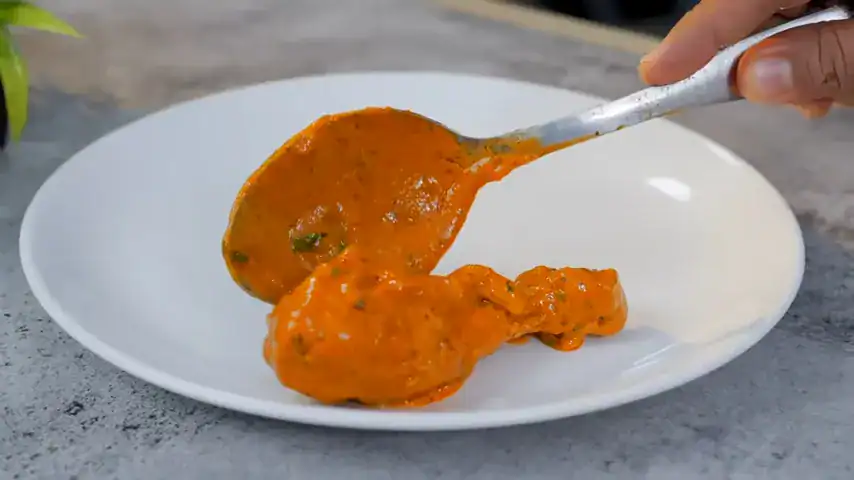
What Is Butter Chicken?
Before we get cooking, let’s break it down. What is butter chicken, exactly?
It’s not as heavily spiced as some other Indian curries but still packs a punch with warming flavors like garam masala, turmeric, ginger, and garlic. Its richness comes from butter, cream, and the cooked-down tomatoes that create a velvety-smooth sauce.
Now, are you ready to roll up your sleeves and recreate this buttery masterpiece?
Why Make Butter Chicken at Home?
There are so many reasons to whip up your own butter chicken instead of waiting for the delivery guy!
Butter chicken originated in Delhi, India, back in the 1950s. It was created by chefs at the Moti Mahal restaurant, who used leftover tandoori chicken and combined it with a tomato-based gravy enriched with butter and cream. The result? Pure magic in a bowl.
- Healthier than takeout: You control the ingredients, so you can make it lighter if you want without sacrificing flavor.
- Saves money: Butter chicken from a good restaurant isn’t cheap. Making it at home costs a fraction of the price.
- Customizable: Want it spicier? Milder? Dairy-free? You can tweak recipes to suit your preferences.
- Impress your friends! Seriously, who wouldn’t swoon over homemade butter chicken?
How to Make Butter Chicken in 6 Simple Steps
1. Marinate the Chicken to Maximize Flavor
The key to tender, flavorful chicken is a great marinade. Here’s what you’ll need for your marinade:
- Boneless, skinless chicken thighs or breasts
- Yogurt (acts as a tenderizer and adds tanginess)
- Garlic and ginger paste
- Spices like turmeric, cumin, coriander, and garam masala
- A squeeze of lemon juice
Mix everything together, coat the chicken well, and let it sit for at least 2-3 hours (overnight is even better). Trust me, the longer it sits, the more flavorful your chicken will be.
Pro tip: If you’re short on time, even a 30-minute marinade will work wonders.
2. Cook the Chicken Until Slightly Charred
Traditionally, butter chicken is made with tandoori chicken, which is cooked in a clay oven. At home, you can use a hot skillet, grill pan, or even an air fryer to get a similar char on the chicken.
Sear the marinated chicken until it’s slightly crispy on the outside but not fully cooked through (it will finish cooking in the sauce later). Remove it from the pan and set it aside.
3. Make the Signature Creamy Tomato Sauce
Here’s where the magic happens! You’ll need a handful of pantry staples to create that rich, velvety butter chicken sauce.
Ingredients for the sauce:
- Butter (of course!)
- Garlic and ginger paste
- Canned tomato puree or fresh crushed tomatoes
- Spices like garam masala, chili powder, and a hint of sugar for balance
- Heavy cream or coconut milk for creaminess
Melt butter in the same pan you used for the chicken, then sauté the garlic and ginger until fragrant. Add the spices, followed by the tomato puree. Cook this down for 10-15 minutes until it thickens slightly and deepens in color.
Stir in cream or coconut milk and taste for seasoning. Adjust with salt, sugar, or chili powder as needed.
4. Combine the Chicken and Sauce
Now comes the best part. Add your seared chicken back to the pan and simmer gently. This allows the chicken to finish cooking and soak up all the flavors of that incredible sauce.
Cook until the chicken is tender and infused with the spices, about 10-12 minutes.
5. Garnish for Maximum Presentation
No butter chicken is complete without a little garnish. Add a dollop of cream, a sprinkle of fresh cilantro, or a few slivers of ginger on top for a pop of color and flavor.
Visual appeal matters! A pretty plate makes the dish even more inviting.
6. Serve and Savor
Butter chicken is best enjoyed with basmati rice or warm naan bread to soak up every last drop of that luscious sauce. What’s your pick? Rice or naan? Or both? (No judgment here.)
Pro Tips
- Use ghee instead of butter for a more authentic flavor.
- Spice it up with a pinch of cayenne if you like extra heat.
- Go dairy-free by substituting coconut milk for cream and vegan butter for regular butter.
- Make it ahead of time. Butter chicken tastes even better the next day as the flavors deepen.
Why This Is the Best Simple Butter Chicken Recipe
Whether you’re cooking for a crowd or treating yourself to some homemade comfort food, this easy butter chicken recipe ticks all the boxes. It’s flavorful, creamy, and surprisingly simple to prepare.
Plus, the flexibility to adjust ingredients and spice levels makes it ideal for both butter chicken purists and adventurous foodies looking to try something new.
Start Cooking Your Butter Chicken Today
Now that you know how to make butter chicken, it’s time to head to your kitchen and get cooking. Trust us, your taste buds will thank you.
If you loved this recipe, don’t keep it a secret! Share it with your fellow foodies and tag us on social media when you make it. We’d love to see your delicious creations. Happy cooking!
FAQ
What is the best cut of chicken to use for butter chicken?
Boneless, skinless chicken thighs are preferred because they stay juicy and tender. However, chicken breasts can also be used if you prefer leaner meat—just be careful not to overcook them.
How long should I marinate the chicken for best flavor?
For optimal flavor, marinate the chicken for at least 2–3 hours. Marinating overnight enhances the taste even more. If you’re in a rush, a 30-minute quick marinade will still yield good results.
Can I make butter chicken dairy-free or vegan?
Absolutely! Swap heavy cream with coconut milk and use vegan butter instead of dairy butter. For a vegan version, replace the chicken with tofu or paneer alternatives like soy chunks.
Is butter chicken very spicy? Can I adjust the heat level?
Butter chicken is moderately spiced, but not overly hot. You can easily reduce or increase the chili powder or garam masala to adjust the spice level to your taste.
What are the best side dishes to serve with butter chicken?
Butter chicken pairs wonderfully with basmati rice, naan, or jeera rice. These sides soak up the creamy, spiced tomato sauce perfectly, making each bite even more satisfying.

